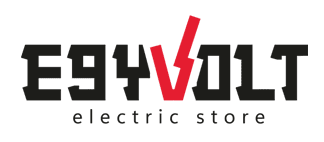British Columbia Youngsters Reading Achievement
British Columbia Youngsters Reading Achievement
Why Beginning Book Learning Counts in British Columbia
Reading is a cornerstone of enduring knowledge acquisition, especially for youngsters growing up in British Columbia. Throughout the province, teachers and parents acknowledge that literacy is more than decoding terms—it’s about comprehending narratives, discovering traditions, and connecting with https://youngreaders.ca the globe. In BC, there’s a singular concentration on weaving in First People learning principles to create comprehensive, enabling reading journeys for every kid.
Recent information from the Ministry of Education shows that early reading proficiency strongly predicts academic success throughout a student’s school career. In 2025, BC Basic Skills Assessment (FSA) results indicated that 73% of Grade 4 pupils met or outperformed expectations in reading. Even though this is promising, it also highlights a shortfall: not all children are fulfilling their full capacity. That is specific reading success strategies and Native insights are utilized.
Constructing Elements: Methods for Literacy Achievement
Supporting BC children reading commences with proven reading success strategies at residence and in classrooms. Investigations from UBC and regional school districts regularly highlights several approaches that improve literacy outcomes:
Household Participation
Youngsters who observe their families value books are more inclined to develop solid competencies themselves. In BC children reading, domestic literacy programs like Decoda Literacy Solutions provide materials such as “Literacy at Home” packages and free storytime events at local libraries.
Methods parents can encourage reading at residence:
- Review out loud daily: Just a quarter of an hour a day makes a quantifiable effect.
- Go to reading rooms together: Access to varied literature encourages interest.
- Discuss stories: Ask queries about protagonists and narrative arc to enhance comprehension.
Classroom Techniques
BC teachers use data-driven techniques to nurture budding book lovers. The province’s redesigned program focuses on customized education, meaning guidance is adapted to each child’s preferences and required knowledge.
Successful learning environment approaches comprise:
- Guided perusing groups: Small assemblies allow instructors to hone in on specific skills.
- Phonetics education: Clear teaching of letter-sound associations develops translation capability.
- Rich texts selection: Assorted writings represent learners’ origins and spark participation.
Local Alliances
Non-profit associations across BC team up with educational institutions to offer additional assistance. For example, the One to One Literacy Society connects trained helpers with students for individualized book sessions—over 1,200 youngsters profited from this program last year solely.
Blending First People Learning Principles
What differentiates BC is its devotion to honouring Indigenous knowledge within schooling. The First People learning principles of Education were formulated by Native Wise Ones and Information Custodians across the province and now guide coursework structuring at all grade levels.
The principles highlight:
- Learning is all-encompassing: It involves the intellect, form, essence, and feelings.
- Learning acknowledges age-based roles: Seniors hold an vital duty in handing down insight.
- Learning is grounded in relationships: Link to territory, group, and heritage is crucial.
Once utilized to reading teaching, these notions change how youngsters encounter books:
Telling stories as Educating
In numerous Indigenous traditions across BC—such as the cultures of the Coast Salish or Nlaka’pamux peoples—oral narration has always been a main way of imparting values and history. Learning centers now bring Wise ones into learning spaces or use digital resources like the First Nations Education Steering Committee (FNESC) Storybooks Project so children can experience tales directly from Tradition Bearers.
Ground-Based Learning
Studying doesn’t have to occur indoors. Numerous BC instructors include land-based tasks—including hiking trips or traditional plant identification—into language arts lessons. This method helps kids see themselves as part of a vibrant tale connected to their habitat.
Appreciation for Diverse Perspectives
Publications by Aboriginal authors such as Nicola Campbell (“Shi-shi-etko”) or Richard Van Camp (“Little You”) are now staples in many BC schools. These particular creations present children to various outlooks while fostering empathy and appreciation for diversity.
Authentic Tales: Victories All Over the Region
Throughout British Columbia, there are inspiring examples of societies coming together around youth’s literacy:
- In Prince George, School District 57 launched an “Indigenous Storytellers-in-Schools” initiative where local Elders tell oral histories with elementary classes each month.
- On Vancouver Island, the Hul’q’umi’num Language & Culture Society collaborated with schools to create bilingual storybooks—helping both Indigenous and non-Indigenous pupils understand local dialects.
- In the Surrey area, parent-organized book clubs facilitated by public libraries feature titles by both Canadian and international authors, encouraging intercultural conversation among youthful readers.
Overcoming Barriers: Equity in Reading Availability
Although advancement is being made, some obstacles endure—especially for countryside areas or households confronting financial difficulty. According based on Statistics Canada data from 2025, approximately 12% of BC households have restricted access to age-appropriate books at home.
Efforts ongoing include:
- Mobile reading trucks serving remote locations from Fort St. Jonathan to BellaCoola
- No-cost novel distributions through associations like Books for Me! Vancouver
- Electronic borrowing services like OverDrive available through many public libraries
These initiatives guarantee every child can discover the delight of reading irrespective of where they dwell or their home situation.
Crucial Points for Guardians and Teachers
Supporting BC children reading adventure requires collaboration between households, schools, Indigenous groups, and local associations. By accepting proven strategies alongside First People teaching concepts, we can help every child find reading success strategies—and meaning—in narratives old and new.
3 practical steps for people supporting budding literary enthusiasts:
- Celebrate ethnic diversity in libraries by featuring creations from Native creators alongside Canada’s classics.
- Make space for collective reading experiences—whether it’s evening tales or listening together during library events.
- Connect education with location by exploring outdoor tasks tied to language advancement.
As BC continues its journey toward academic fairness and reconciliation, weaving together these approaches ensures that all kids not only acquire reading skills—but also find their identity within the books they read.

